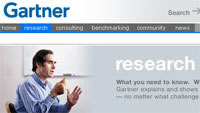 Worldwide shipments of PCs rose by 10.3 percent in the first quarter, with global shipments increasing to 50.4 million units, up from the 45.7 million PCs shifted during the same period a year ago.
Worldwide shipments of PCs rose by 10.3 percent in the first quarter, with global shipments increasing to 50.4 million units, up from the 45.7 million PCs shifted during the same period a year ago.
The research by Gartner Inc echoes the general trend reported by its competitor International Data Corp, which reported a slightly higher growth figure of 10.9 percent.
Market leader Dell, saw its worldwide growth rate slip below 20 percent for the first time in 10 quarters, as US companies shelled out less than expected on PCs.
Dell’s 13.7 percent growth rate was still enough, however, to inch up its market share to 16.9 percent from 16.4 percent, with the company continuing to grow faster than competitors and the market in general.
The lack of sales in the US was made up by increased sales in Europe, the Middle East and Asia, with small businesses in Western Europe being the biggest contributor to the boost in shipments in the EMEA region.
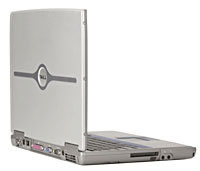 The report notes that lower vendor prices and the strong Euro to the dollar exchange rate helped open up small business wallets over Europe.
The report notes that lower vendor prices and the strong Euro to the dollar exchange rate helped open up small business wallets over Europe.
With US corporations appearing to be at the tail end of their usual four-year replacement cycle, the report speculates that sales probably won’t pickup dramatically until around 2008.
The vast bulk of PC sales in 2004 – 69 percent – were by corporations, educational institutions, small and midsize businesses and the government with consumers buying the rest.
Notebook sales globally continued to be very strong with customers tempting by falling prices.
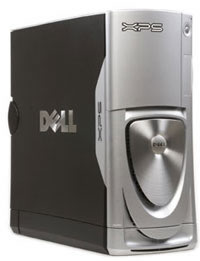 In the US market – the biggest in the world – Apple shimmied up to fifth position, elbowing Toshiba down a place.
In the US market – the biggest in the world – Apple shimmied up to fifth position, elbowing Toshiba down a place.
As we reported last week, Apple had a bumper year, with shipments rising by more than 45 percent, driven by iMac and PowerBook sales. This success is reflected in the company’s increased market share, up to 3.7 percent from 2.6 percent a year ago.
Dell remains the biggest PC vendor in the world followed by, Hewlett-Packard, IBM, Fujitsu/Fujitsu Siemens and Acer.
In the US market, the big boys are Dell, HP, Gateway, IBM and Apple.
Karine Paoli, research director for IDC’s Personal Computing group, took a very deep breath and delivered this exceptionally long sentence : “If 2004 has been a strong year for the PC market, boosted by a rebound in commercial investment and portable adoption across EMEA, and if growth is expected to be softer this year, 2005 will remain buoyant, and highlight key transitions which will shape the market beyond 2006 – expansion of broadband and digital entertainment in homes, while businesses will look increasingly at mobility and wireless as part of their overall IT strategies.”
 Despite being judged the fourth most digitally-savvy nation in Europe, it seems that 40% of the UK adult population don’t know their wi-fi from their waffles.
Despite being judged the fourth most digitally-savvy nation in Europe, it seems that 40% of the UK adult population don’t know their wi-fi from their waffles.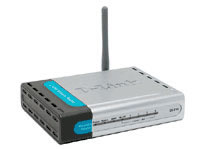 A smaller group (15%) expected their usage to increase dramatically in 2005, with the 16-24yr age group expected to increase its usage the most (52%) compared to 34 per cent of the 35-44 age group.
A smaller group (15%) expected their usage to increase dramatically in 2005, with the 16-24yr age group expected to increase its usage the most (52%) compared to 34 per cent of the 35-44 age group.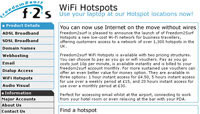 Geographically, London takes the honours as the King WiFi hotspot of the UK with a higher awareness and usage of WiFi (hardly surprising since there are more hotspots in London than anywhere else in the UK) whilst residents oop North in Yorkshire are the least Wi-Fi savvy.
Geographically, London takes the honours as the King WiFi hotspot of the UK with a higher awareness and usage of WiFi (hardly surprising since there are more hotspots in London than anywhere else in the UK) whilst residents oop North in Yorkshire are the least Wi-Fi savvy. UK Online is hoping to bring broadband to the masses by smashing the price point for “entry-level” home broadband down to a wallet-untroubling £10 a month.
UK Online is hoping to bring broadband to the masses by smashing the price point for “entry-level” home broadband down to a wallet-untroubling £10 a month. Surfers not used to this level of generosity may be wondering where the catch is, but we haven’t found it yet: we wrote to UK Online and they confirmed that both the Broadband 500 and Broadband 2000 are unlimited services with the Broadband 8000 offering an enormous 500GB monthly download allowance.
Surfers not used to this level of generosity may be wondering where the catch is, but we haven’t found it yet: we wrote to UK Online and they confirmed that both the Broadband 500 and Broadband 2000 are unlimited services with the Broadband 8000 offering an enormous 500GB monthly download allowance. Irish VoIP solutions provider Cicero Networks has announced its first major telecom provider deal with Talktelecom Ltd, an independent, fully licensed General Telco Operator, based in Dublin.
Irish VoIP solutions provider Cicero Networks has announced its first major telecom provider deal with Talktelecom Ltd, an independent, fully licensed General Telco Operator, based in Dublin.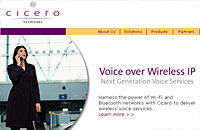 “Cicero Networks’ integrated end-to-end solution has given us a fast time-to-market in delivering a truly innovative and cost-effective wireless voice service,” buzzworded Talktelecom CEO, Johathan Mills. “Cicero lets us grow our existing business and enter new markets while delivering a substantial return on investment in a short time,” he added.
“Cicero Networks’ integrated end-to-end solution has given us a fast time-to-market in delivering a truly innovative and cost-effective wireless voice service,” buzzworded Talktelecom CEO, Johathan Mills. “Cicero lets us grow our existing business and enter new markets while delivering a substantial return on investment in a short time,” he added.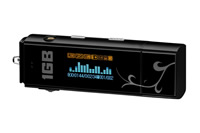 Jens of Sweden has unveiled its latest cool digital music player which they reckon will give iPod Shuffle a run for its money.
Jens of Sweden has unveiled its latest cool digital music player which they reckon will give iPod Shuffle a run for its money.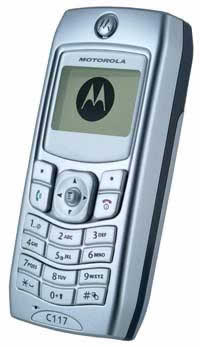 In response to demand from emerging markets the
In response to demand from emerging markets the 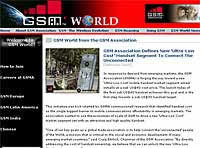 The next stage of the project will see the project extended to other emerging market operators, while more vendors will be encouraged to supply terminals for this sizable segment.
The next stage of the project will see the project extended to other emerging market operators, while more vendors will be encouraged to supply terminals for this sizable segment.
 The two companies worked for several months to integrate the software with the handsets and have provided a solution that will, in some circumstances, enable calls made over GSM and GPRS technology to be free, while others will be subject to small charges.
The two companies worked for several months to integrate the software with the handsets and have provided a solution that will, in some circumstances, enable calls made over GSM and GPRS technology to be free, while others will be subject to small charges.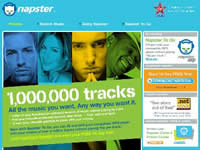
 Unlimited music? Over a million tracks? Sounds like the original Napster. Well, there’s the catch. Once you stop shelling out the monthly fee, you’ll be listening to a hard drive full of silence, courtesy of Microsoft’s new Janus digital rights management (DRM) system turning off your access to the tracks.
Unlimited music? Over a million tracks? Sounds like the original Napster. Well, there’s the catch. Once you stop shelling out the monthly fee, you’ll be listening to a hard drive full of silence, courtesy of Microsoft’s new Janus digital rights management (DRM) system turning off your access to the tracks.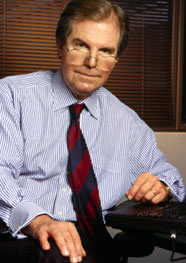 A $100 (€76, £53) laptop computer for the developing world has been touted at the World Economic Forum in Davos by Nicholas Negroponte, founding chairman of MIT’s Media Lab.
A $100 (€76, £53) laptop computer for the developing world has been touted at the World Economic Forum in Davos by Nicholas Negroponte, founding chairman of MIT’s Media Lab. Cheaper legal download sites will shake up the online music industry, according to Easyjet founder Stelios Haji-Ioannou.
Cheaper legal download sites will shake up the online music industry, according to Easyjet founder Stelios Haji-Ioannou.